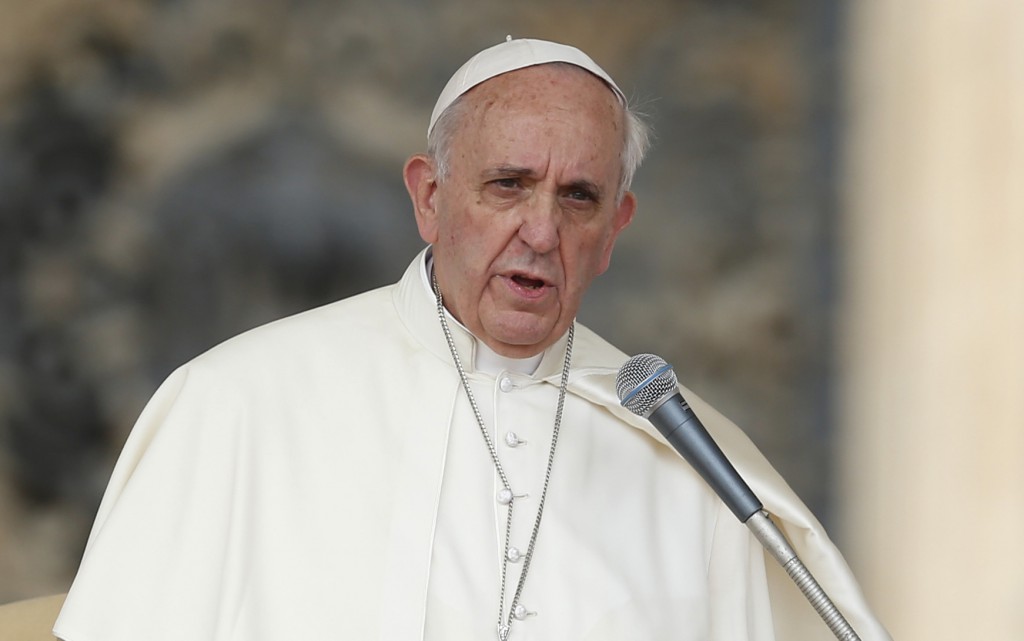
By Carol Glatz
While a military-backed dictatorship in Argentina was conducting a clandestine war on suspected dissidents, then-Father Jorge Mario Bergoglio, the future pope, masterminded a secret strategy to save those being targeted, according to a new book.
Titled “Bergoglio’s List: Those Saved by Pope Francis; Stories Never Told,” also includes the transcript of the then-cardinal’s testimony during a nearly four-hour court interrogation in 2010. A panel of judges was investigating suspected human rights violations committed during the 1976-1983 dictatorship.
The future pope was head of the Jesuit province in the country from 1973 to 1979, the height of the clandestine war, which saw as many as 30,000 Argentines kidnapped, tortured, murdered or disappeared, never to be seen again.
The book, currently only in Italian, was to be released Oct. 1, while excerpts were published in the Italian Catholic daily, Avvenire, Sept. 6.
According to the various testimonies gathered together in the volume, the future pope made sure no one knew who was part of a clandestine network that sheltered or shuttled to safety dissidents, unionists, priests, students, intellectuals, Catholics and others.
“Each person would do one particular favor for (Father Bergoglio) the head of the Jesuits in Argentina: one who would let someone sleep over for one night, another who would give someone a ride, one would put in a good word to a European consulate worker” in getting someone out of the country, said the Vatican paper, L’Osservatore Romano, Sept. 7.
By never letting anyone know he was part of a larger, coordinated effort, then-Father Bergoglio could keep “the risk minimal and let information circulate as little as possible,” the paper said.
In the book, Argentine Jesuit Father Juan Manuel Scannone said the future pope never let on to anyone what he was doing, and no one even realized what they had been part of until years later.
Priests and seminarians thought the frequent visitors they hosted were on spiritual retreat or getting help with their studies as then-Father-Bergoglio had suggested, he said.
Instead they were priests, seminarians or students “who had ended up in the crosshairs of the dictatorship” and, in the provincial college or other residences, could find safety from being kidnapped by police.
“It took us years to realize the complete truth about Father Jorge’s rescue efforts,” said the priest, who is the director of the institute of philosophy at the Jesuit university and seminary in San Miguel.
Some claims had been made that Pope Francis played either a direct role in the kidnappings of two Jesuit priests during the country’s murderous military dictatorship or that he allegedly failed to protect the two young priests — Fathers Orlando Yorio and Francisco Jalics — from kidnapping by Argentina’s military junta in 1976. Both priests were later freed.
Father Scannone, 81, who lived with the future pope during that period in San Miguel, said he saw firsthand the pope’s efforts to help free the men.
“I can testify to the worry and commitment of the provincial Father (Bergoglio) in freeing both of them,” he said.
“He told me what he was doing and the information he collected in order to discover who had kidnapped them and where they might be imprisoned,” said the priest.
The future pope was able to gather enough information that would “pin the generals to a corner,” and the two priests were eventually freed, Father Scannone said.
Father Bergoglio also helped them escape abroad afterward so they would not run the risk of falling victim to another tragedy, he said. – CNS